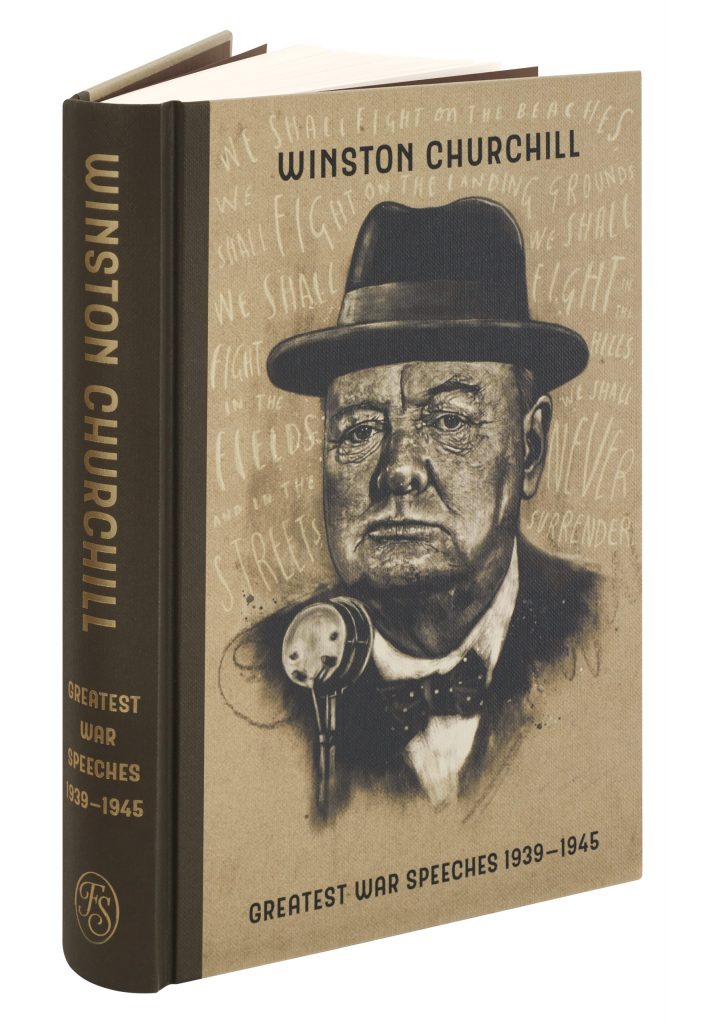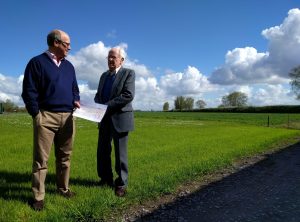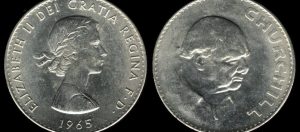
Bulletin #150 — Dec 2020
Churchill’s War Speeches

November 29, 2020
Winston S. Churchill, Greatest War Speeches: 1939–1945, Folio Society, 2020, 361 pages, £39.95/$59.95.
Review by DAVID FREEMAN
The Folio Society has published beautiful editions of many titles by Winston Churchill including his memoirs from both world wars, My Early Life, and Great Contemporaries. The Society’s newest addition, however, joins a crowded field of available collections of Churchill war speeches and so requires some scrutiny.
Editor James Rose says that he “wanted to cover the entirety of the war and have as broad a selection of speeches as possible.” For this reason, he chose to base the Folio edition on the rare 1946 collection War Speeches 1940–1945. It is a curious choice. That collection was prepared by the Central Office of Information in 1946, and it seems unlikely that Churchill had a hand in it. The text may have been altered by the COI for then current reasons of state because it was intended for translation and free distribution in Europe and never meant for the English-language market or even any commercial foreign-language markets. It would have made more sense for Folio to have used as their copy text the definitive three-volume collection of war speeches published by Cassell in 1952.

2025 International Churchill Conference
That said, the editor also consulted the six volumes of war speeches edited first by Randolph Churchill and subsequently by Charles Eade. Rose then compared these texts with Hansard whenever he detected a variation between the COI versions and the speeches as they appear in the editions edited by Churchill and Eade. Thus the results published in this new collection should be considered as reliable as any volume of Churchill’s war speeches can be since, for the most part, no word-for-word transcriptions exist because few of the speeches were recorded when they were originally delivered.
Apart from the usual outstanding physical quality of all of Folio’s books, the principal attraction of this volume is a foreword by Churchill’s grandson Sir Nicholas Soames, who observes that the speeches “cover the highs and lows of an immensely challenging and often terrible period in the national life of the country.” Since the editor also utilized Into Battle, Churchill’s first collection of war speeches, this collection covers not just Churchill’s time as Prime Minister but the entirety of the war starting with Churchill’s speech as First Lord of the Admiralty on 3 September 1939 and ending with the statement he made as Leader of the Opposition on 16 August 1945 following the defeat of Japan.
A single-volume collection must necessarily be highly selective given the large amount of material available, and the editor has used his discretion to choose those speeches he believes to be most significant while also illustrating the progress of the war. The book is divided into six sections with each preceded by a chronology of events that helps to place the speeches in their context. All readers will have their own views on what should have been included. Omitted here is Churchill’s 1941 speech to the US Congress, which is best remembered now for its opening joke, but which I have argued elsewhere was a speech of extreme importance because the Prime Minister needed to work hard to convince Congress to support the Europe-first policy favored by Britain and the Roosevelt administration. But this is a minor quibble.
Once again the Folio Society has produced a handsome volume—and the more such collections of Churchill’s speeches on the market the better. Those who desire a complete compilation of Churchill’s war speeches have other options, but this collection will serve well those who are content with a selection of highlights. It will also look very smart on the shelf.
Greatest War Speeches: 1939–1945 by Winston Churchill is available exclusively from the Folio Society. To visit their website, please CLICK HERE.
David Freeman is editor of the Churchill Bulletin.
Subscribe
WANT MORE?
Get the Churchill Bulletin delivered to your inbox once a month.





